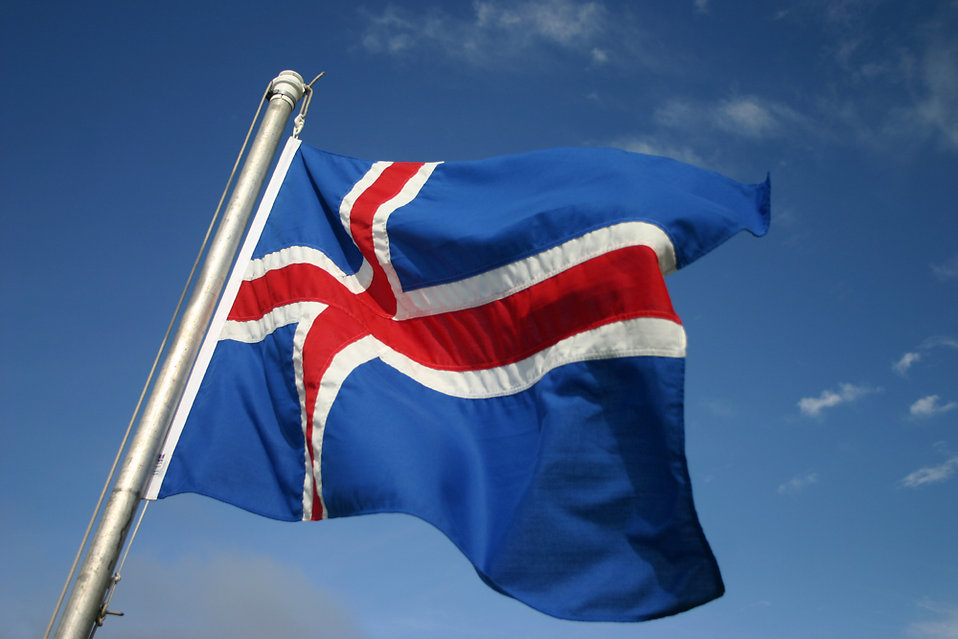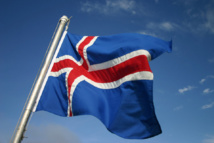Yesterday it was announced that Iceland has withdrawn its application for membership in the European Union, which was filed in 2009 - reports AFP. The decision was not momentary; before Prime Minister Sigmundur Davíð Gunnlaugsson reported that Iceland is preparing for such a step. Accession negotiations were suspended as early as 2013. A formal appeal of the intention not to renew in the future accession negotiations has already been transferred to the EU leadership.
Even at the time of filing of the application in the country there was no consensus and confidence about the need for such a step. This is indicated by the results of voting in Parliament during the decision-making 6 years ago, with 33 votes for EU accession, 28 MPs voted against it, yet two abstentions.
The main argument in favor of the application have been switching to the euro and the ability to influence decision-making. Meanwhile, Iceland zone joined to the Schengen back in 2000. Earlier, in 1994, along with other countries Iceland joined in a common European economic space, bringing together the markets of Western and Northern Europe. To date, the EU countries are the main purchasers's of small range of Iceland products - European buyers are accounted for more than 2/3 of the total foreign trade of the country. Iceland also became one of NATO members first in 1949. To this day, it allows her to not have its own army and do the Coast Guard.
The crisis of 2008 Iceland suffered with great difficulty, losing three of the largest bank in the country and nearly became bankrupt. On the consequences of this the country has not coped so far, its external debt today is 6 times higher than GDP. Recall, that before the crisis, Iceland was one of the most economically developed countries in the world with a population of just over 300 thousand people. Largely the economic difficulties pushed Reykjavik to the question of accession to the EU. Such a decision could give some guarantee of economic stability in the country and protect it from the recurrence of similar accidents in the future.
The main argument against the country's entry into the EU has always been European requirements relating to fisheries. Iceland is the northernmost island nation, so that the main branch of the economy have always been taking and processing of this resource freely floating around. Icelandic fishing fleet is perhaps the best in the world. Iceland annually catches about 2 million tons of fish, much of which is supplied in the EU (around 50%).
Disputes concerning quotas for catching fish between Iceland and the EU appeared throughout the years, while the country was in the ranks of candidates for membership. Before that Iceland was in active "cod war" with its nearest neighbor and fishing rival - Great Britain. The Vikings unilaterally increased Statement maritime boundaries within which they intended to fish, or cut a network of English fishermen. Several times, it almost broke to conflict, but NATO always settled them just at the right time. Alliance did not want to lose its large base on the northern island.
Another stumbling block between Iceland and the EU is the external debt of Reykjavik, which he refuses to pay. During the crisis, which almost ruined the country, three major banks collapsed, what was said above. It is noteworthy that the total assets of these banks before the crisis is several times higher than the country's GDP. All of them base their activities on the principle of hedge funds, and this secured a guaranteed collapse at the first serious market fluctuations.
Then, when things in the straightforward banking system were still good, citizens of neighboring European countries, in particular the Netherlands and the UK, actively invested in there. After the fall of the banking sector it turned out that there’s simply no money for the payment of deposits. Iceland honestly reported to the European neighbors, but they did not accept an apology and froze the assets of Icelandic banks in the UK. Iceland's parliament passed a law on the payment of debts to foreign investors, but the incumbent president refused to sign it. As a result, the question of whether they even pay foreigners any money was put to the national referendum. Of course, 90% of the population voted to not return any money to anyone.
The conflict has still not been settled.
Even at the time of filing of the application in the country there was no consensus and confidence about the need for such a step. This is indicated by the results of voting in Parliament during the decision-making 6 years ago, with 33 votes for EU accession, 28 MPs voted against it, yet two abstentions.
The main argument in favor of the application have been switching to the euro and the ability to influence decision-making. Meanwhile, Iceland zone joined to the Schengen back in 2000. Earlier, in 1994, along with other countries Iceland joined in a common European economic space, bringing together the markets of Western and Northern Europe. To date, the EU countries are the main purchasers's of small range of Iceland products - European buyers are accounted for more than 2/3 of the total foreign trade of the country. Iceland also became one of NATO members first in 1949. To this day, it allows her to not have its own army and do the Coast Guard.
The crisis of 2008 Iceland suffered with great difficulty, losing three of the largest bank in the country and nearly became bankrupt. On the consequences of this the country has not coped so far, its external debt today is 6 times higher than GDP. Recall, that before the crisis, Iceland was one of the most economically developed countries in the world with a population of just over 300 thousand people. Largely the economic difficulties pushed Reykjavik to the question of accession to the EU. Such a decision could give some guarantee of economic stability in the country and protect it from the recurrence of similar accidents in the future.
The main argument against the country's entry into the EU has always been European requirements relating to fisheries. Iceland is the northernmost island nation, so that the main branch of the economy have always been taking and processing of this resource freely floating around. Icelandic fishing fleet is perhaps the best in the world. Iceland annually catches about 2 million tons of fish, much of which is supplied in the EU (around 50%).
Disputes concerning quotas for catching fish between Iceland and the EU appeared throughout the years, while the country was in the ranks of candidates for membership. Before that Iceland was in active "cod war" with its nearest neighbor and fishing rival - Great Britain. The Vikings unilaterally increased Statement maritime boundaries within which they intended to fish, or cut a network of English fishermen. Several times, it almost broke to conflict, but NATO always settled them just at the right time. Alliance did not want to lose its large base on the northern island.
Another stumbling block between Iceland and the EU is the external debt of Reykjavik, which he refuses to pay. During the crisis, which almost ruined the country, three major banks collapsed, what was said above. It is noteworthy that the total assets of these banks before the crisis is several times higher than the country's GDP. All of them base their activities on the principle of hedge funds, and this secured a guaranteed collapse at the first serious market fluctuations.
Then, when things in the straightforward banking system were still good, citizens of neighboring European countries, in particular the Netherlands and the UK, actively invested in there. After the fall of the banking sector it turned out that there’s simply no money for the payment of deposits. Iceland honestly reported to the European neighbors, but they did not accept an apology and froze the assets of Icelandic banks in the UK. Iceland's parliament passed a law on the payment of debts to foreign investors, but the incumbent president refused to sign it. As a result, the question of whether they even pay foreigners any money was put to the national referendum. Of course, 90% of the population voted to not return any money to anyone.
The conflict has still not been settled.



















